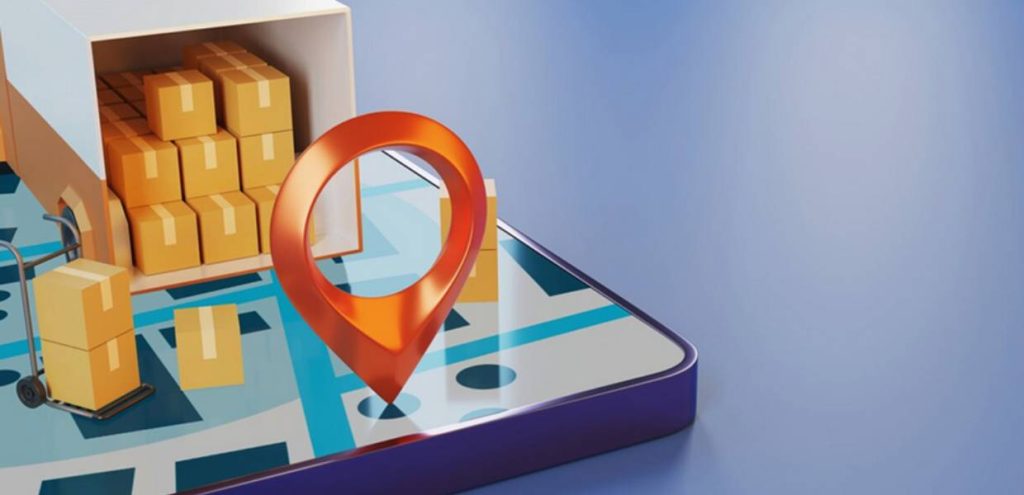E-commerce has been on the rise in the last decade, as access to the Internet and demand for easily-accessible online goods and services continue to grow. There is no question that the Covid-19 lockdowns had a significant effect on the e-commerce and on-demand industries, as a whole. This trend is not showing any signs of slowing down, despite our national and global transitions back to post-pandemic “normal”.
Although the pandemic is coming to an end and restrictions are slowly being removed worldwide, the on-demand delivery trends we have seen grow are firmly embedded into the way we consume. Post-pandemic, all businesses are going to have to adapt their operations and practices to meet this growing demand for fast, accessible and simple at-home deliveries.
Last-mile logistics systems are going to have to help big and small online providers keep up with the ever-evolving online shopping space. Expanding online markets, such as food, retail, health and digital services, are just the beginning. To underscore this point, it was reported that South Africa’s e-commerce market had grown to 4,5 billion dollars in the year 2021.
In fact, there is extensive research that shows the local e-commerce market will grow to almost eight billion dollars by 2027. That is almost doubling the market value of e-commerce businesses over the next five years. The truth about this growth is that it means the demands of end-customers will grow to meet the growing capabilities of the e-commerce market.
It is critical that online businesses get their last-mile logistics and online customer experience right. Unsatisfactory delivery options, high shipping costs and poor customer service are the most common contributors to losing online customers. Following the e-commerce trends that are defining the industry, will help brands and owners stay competitive in one of the most competitive markets today.
Here are some of the e-commerce trends that you should keep an eye on:
AI and Machine Learning
The truth is that artificial intelligence (AI) and machine learning are integral parts of all digital markets and have transformed the way all businesses operate in the 2020s. Therefore, it is no surprise that AI and machine learning have had a significant role in improving last-mile logistics and optimising e-commerce operations. These tools are critical to successfully navigating the booming on-demand economy.
AI and machine learning help last-mile delivery providers build more efficient delivery routes, streamlining business operations and create better customer experiences. This is done through tracking and monitoring performance data and using those actionable insights to improve future on-demand services for online businesses. This includes customer tracking options and helps improve business transparency and consumer trust.
Emergence of 5G technology
5G is one of the latest and greatest evolutions that is helping improve Internet access, grow e-commerce viability and speedup mobile data. In fact, 5G offers mobile data speeds up to 20-times faster than the (former) best existing digital data – 4G long-term evolution (LTE) networks – which will have a tremendous impact on the on-demand economy.
5G technology is still being established in South Africa, however, we have begun to see the benefits of 5G for our e-commerce industry, already. E-commerce businesses and last-mile delivery services are improving their analytics-based on-demand solutions that allow for better supply chain and inventory management. The real-time data visibility, analysis and insights will help owners and managers make faster and more informed decisions.
Smartphone and mobile-based logistics
In the past, logistics companies would have a hard time connecting with their drivers in real-time and now, thanks to the rise of smartphones and mobile devices, managers and operators can communicate with their drivers on the road more easily than ever before. Not to mention, smart devices can help transmit critical data and information between delivery vehicles and a central hub.
From validating deliveries and GPS tracking to route management and driver safety, smart technologies have transformed the logistics and freight forwarding industry for the better. Smartphones also allow companies to transition into a paperless delivery system that is good for the environment and simpler for customers. Access to the Internet of Things through smart devices helps streamline the administration, management, delivery routes and invoicing associated with e-commerce.
IoT and the Future of Smart Logistics
The Internet of Things (IoT) has a significant impact on every aspect of modern-day life. This includes every business, industry and market attempting to find success in today’s on-demand economy. Smart logistics are just one of the many evolving markets thanks to the growing IoT. Real-time data access and intelligent data analysis allow logistics firms to manage assets remotely, improve cargo handling, ensure accurate deliveries and grow on-demand services.
E-commerce businesses are going to have to introduce smart logistics technologies and services into their online platforms sooner rather than later. Freight forwarding companies have already made this transition and are fully-equipped to optimise their transport operations through smart logistics tools and software. Consider this when choosing freight forwarding and logistics partners, make sure they keep up with the latest trends in e-commerce.
M6T have been established as a trusted and comprehensive logistics partner, in South Africa and beyond, for many years. Our global network spans across the international shipping industry and helps us provide world-class freight forwarding services to our clients. Contact M6T at our Johannesburg or Durban branch today for all of your freight forwarding and logistics needs.



